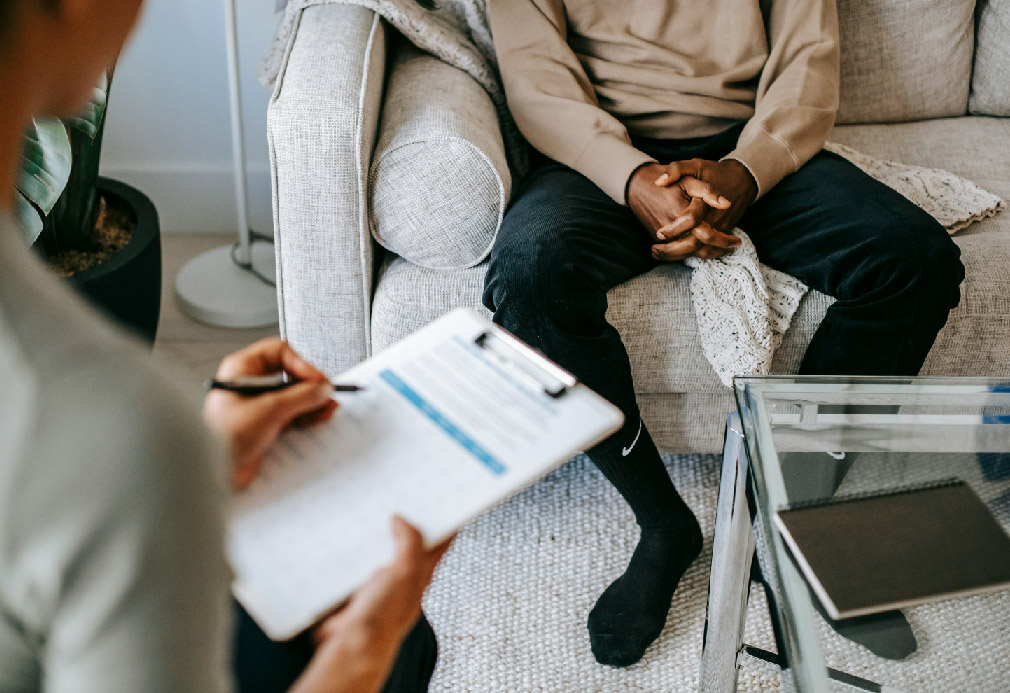Infidelity
How To Get Past Infidelity Triggers *We’re a participant in multiple affiliate programs including the Amazon Services LLC Associates Program, affiliate advertising programs are designed to provide a means for us to earn fees by linking to Amazon.com and other affiliated sites to provide the highest quality content to you at no charge.*

In a relationship, infidelity can be one of the most difficult challenges to overcome. The betrayal and pain caused by cheating can leave lasting emotional scars and trigger intense emotions in both partners. While it might seem impossible, the good news is that it is possible to move past these triggers and rebuild trust in a relationship!
Understanding Infidelity Triggers
Before we discuss how to get past infidelity triggers, it’s essential to understand what they are. Triggers are anything that reminds us of the cheating that took place in our relationship. This could be a particular place, activity, or even a word that was said during the affair. These triggers can cause a range of emotions, from anger and resentment to sadness and fear. It’s important to recognize these triggers and learn how to manage them. If you’re curious to dig in further, click here to see if you can heal your broken relationship.
1. Acknowledge The Pain
The first step in getting past infidelity triggers is to acknowledge the pain and hurt that you are feeling. It’s natural to experience a range of emotions after being betrayed, and giving yourself time to process those feelings is important. Don’t try to push them away or ignore them, as this can lead to more intense triggers in the future. Instead, allow yourself to feel the pain and work through it healthily. It’s also important to acknowledge your emotions. Don’t be afraid to talk about them with your partner or seek support from a therapist or trusted friend. Embrace them, and don’t try to mask them with things like alcohol or drugs. This may seem like an easy solution to numb the pain, but it will only delay the healing process.
2. Communicate With Your Partner
Open communication is vital in any relationship, but especially after infidelity. Having an open and honest conversation with your partner about what triggers you and how they can support you through those moments is important. This helps them understand your feelings and shows that they are willing to work on rebuilding trust and making amends for their actions. It’s essential to approach your conversation with empathy and understanding rather than blame or anger. It’s meaningful to hear your partner’s perspective as well. This can help you both heal and move forward together. Relationship expert Brad Browning explains how this is key in rebuilding relationships with turmoil, such as infidelity.

3. Set Boundaries With Your Partner
After infidelity, boundaries are crucial in rebuilding trust and creating a safe space for both partners. This includes being open and honest about your emotions and setting clear boundaries around communication with the person who cheated. These boundaries are vital so both partners can feel respected and secure in the relationship. (Read more in our article 20 Ways to Solve Relationship Conflicts for how to handle situations that lead us to set boundaries.) These boundaries may include physical boundaries around what is and isn’t acceptable in your relationship. Having these conversations together is important so both partners feel heard and understood. Your “past” relationship is over, and relationship experts agree that building something new and healthy is where your focus should be.
4. Practice Self-Care
Dealing with infidelity triggers can be emotionally draining, which makes it that much more important to take care of yourself during this time. Make sure to prioritize self-care activities such as exercise, healthy eating, and getting enough rest. Maintaining a nutritious and balanced diet, along with getting the appropriate amount of sleep to help manage stress levels and improve overall well-being. Find ways to soothe yourself and relax, like taking a warm bath or practicing mindfulness. This can include looking to others to see if it’s meant to be between you and your partner. Engaging in activities that make you happy and help you feel good about yourself is also important. This might include some of your favorite hobbies and interests or spending time with supportive friends and family members. By taking care of yourself, you’ll be better equipped to handle triggers when they arise. Don’t neglect your mental health either – consider therapy or joining a support group to help process your emotions. This element is crucial in helping you be kind to yourself and genuinely acknowledge your feelings, whether they are related to infidelity or not. Taking care of yourself will help you cope with triggers and make you stronger and more resilient in the long run.
5. Practice Forgiveness
One of the first steps in moving past infidelity triggers is to practice forgiveness. This may seem impossible initially, but forgiveness does not mean you’re excusing their behavior or forgetting what happened. It simply means eliminating the anger and resentment towards your partner and choosing to move forward. Forgiveness is a process that takes time, but it can be incredibly healing for both partners. First, learn to forgive yourself. You may blame yourself for not seeing the signs of cheating or not being enough for your partner. Remember, it is not your fault that your partner chose to cheat. Second, be honest with yourself about forgiving your partner. It may take time, but it’s important to work towards forgiving them.
6. Seek Individual Therapy
Dealing with infidelity triggers can be overwhelming and challenging to handle on your own. Pursuing therapy can provide a safe space to process your emotions and learn coping strategies. A professional can also help you identify any underlying issues contributing to the triggers, including events from your past or current issues. Individual therapy can be a very beneficial tool in your journey towards healing and moving past infidelity triggers.

7. Try Couples Counseling
Infidelity can cause a breakdown in communication and trust between partners. Couples counseling can provide a space for both partners to express their feelings and work on rebuilding trust in the relationship. A therapist can also help couples develop healthy communication skills and learn how to manage infidelity triggers together. A safe space to be completely open and vulnerable is crucial to rebuilding a relationship, and couples counseling can provide just that.
How to get past infidelity triggers
Now that you’ve identified these triggers, how do you get past them? Here are some things to keep in mind when working on getting past infidelity triggers.
Don’t try to do it alone:
It is important to have supportive friends or family members to talk to and confide in during this difficult time. They can listen and help you work through your feelings without judgment. When struggling with potent emotions, talking to someone who can understand what you’re going through is vital. Don’t suffer in silence! Having a support system of people whom you trust and can be completely open with can make all the difference when it comes to healing from infidelity. It may also be helpful to talk to someone who has been through the same thing and can offer firsthand understanding and advice. Try to avoid talking with people who are still in a lot of pain themselves, as this can be triggering for you and cause you to spiral into dredging up those feelings of hurt and betrayal. Don’t become a support system for someone else if you are still struggling with your own triggers and healing!
Try to focus on the present and where things are now:
It’s natural to want to dwell on the past and what happened, but it’s important to not let that consume you. Instead, focus on where your relationship is now and how far you have rebuilt trust. It’s important to be present and live in the moment rather than constantly thinking about what has already happened – take it from relationship expert Brad Browning – don’t focus on the past! Specific techniques like meditation and yoga can help get you to a place of peace and mindfulness in the present moment. The present moment is said to be a place of peace, the past is depression, and the future is anxiety. Don’t set yourself up for a spiral of negative thoughts by dwelling on the past.
Don’t dwell on what ifs:
Similar to what we mentioned above, it’s natural to wonder what could have been done differently to prevent the cheating from happening. However, constantly dwelling on these thoughts will only keep you rooted in the past and prevent you from moving forward. Instead, focus on what you can do now to improve your relationship. This includes things like what could have been if the affair had never happened or if you had done something differently. All you have is right now, so make the most of it! Don’t be hard on yourself if you find yourself slipping into these thoughts; gently redirect your focus back to the present.
Seek professional help
Dealing with infidelity triggers can be an overwhelming challenge to navigate on your own, even with having a support system of friends and family members. Suppose the pain is too much, and you feel like you’re not progressing. In that case, it may be best to seek the guidance of a licensed counselor or therapist. They can provide you with the tools and support you need to work through your triggers and rebuild trust in your relationship. Group therapy or support groups can also be beneficial as you will be surrounded by others who are going through a similar experience.
Distract yourself at times:
When you are triggered, it can be helpful to distract yourself with an activity or task. This can help redirect your thoughts and emotions in a more positive direction. It’s important not to ignore your feelings; sometimes, a helpful distraction can give you space to process them. This may be as easy as watching a funny movie, going for a walk, or diving into a hobby that you enjoy. Starting a new hobby is a great distraction, too. Try growing your own flowers and herbs with an Indoor Hydroponic Growing system, or try your hand at creating your own candles with a Soy Candle Making Kit!

Find healthy ways to cope:
It’s important to find healthy ways to cope with the intense emotions triggered by infidelity. This could include journaling, meditation, talking to a therapist, or exercise. Find what works best for you and make it a part of your routine. This Meditation Cushion Set is a great way to build a comfortable space to relax and focus your mind. (And it comes in 19 different colors to choose from!)
Have patience:
Healing from infidelity takes time. It is important to be patient with yourself and your partner as you work through these triggers and begin to trust again. Some days will be easy, while others may be more difficult. Accept this is a process, and be patient with yourself as you navigate it. This is often easier said than done, but remember that healing is not a race, and there is no set timeline for how little or long it will take.
In summary, it’s important to remember that rebuilding trust after infidelity takes time and continued effort from both partners. Communication, honesty, and forgiveness are crucial in the healing process. By addressing triggers head-on and working together as a team, you can move past infidelity and create a stronger, more resilient relationship. Remember to be patient with yourselves and each other, and seek counseling or therapy if needed. With commitment and dedication, you can overcome infidelity and create a healthier, happier relationship. It’s important to remember that no one is perfect, and we all make mistakes. What matters most is how we choose to move forward from them. By choosing to work together towards healing and growth, you have the power to overcome any challenge – even the pain.

A Romantic View On Valentine’s Day History

How To Prepare For Couples Counseling












